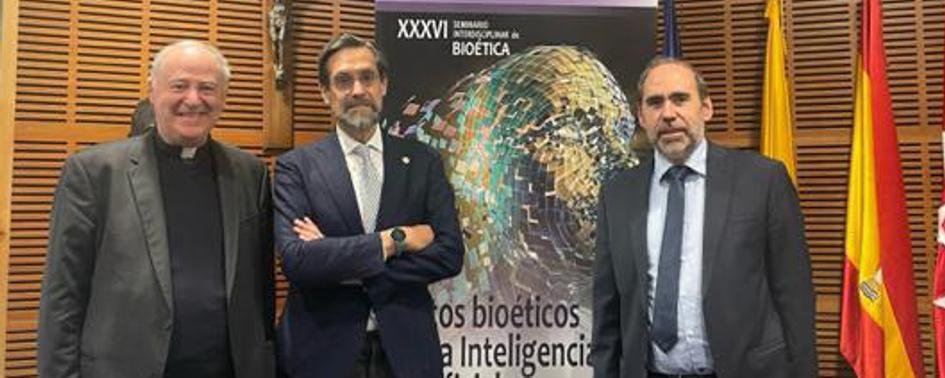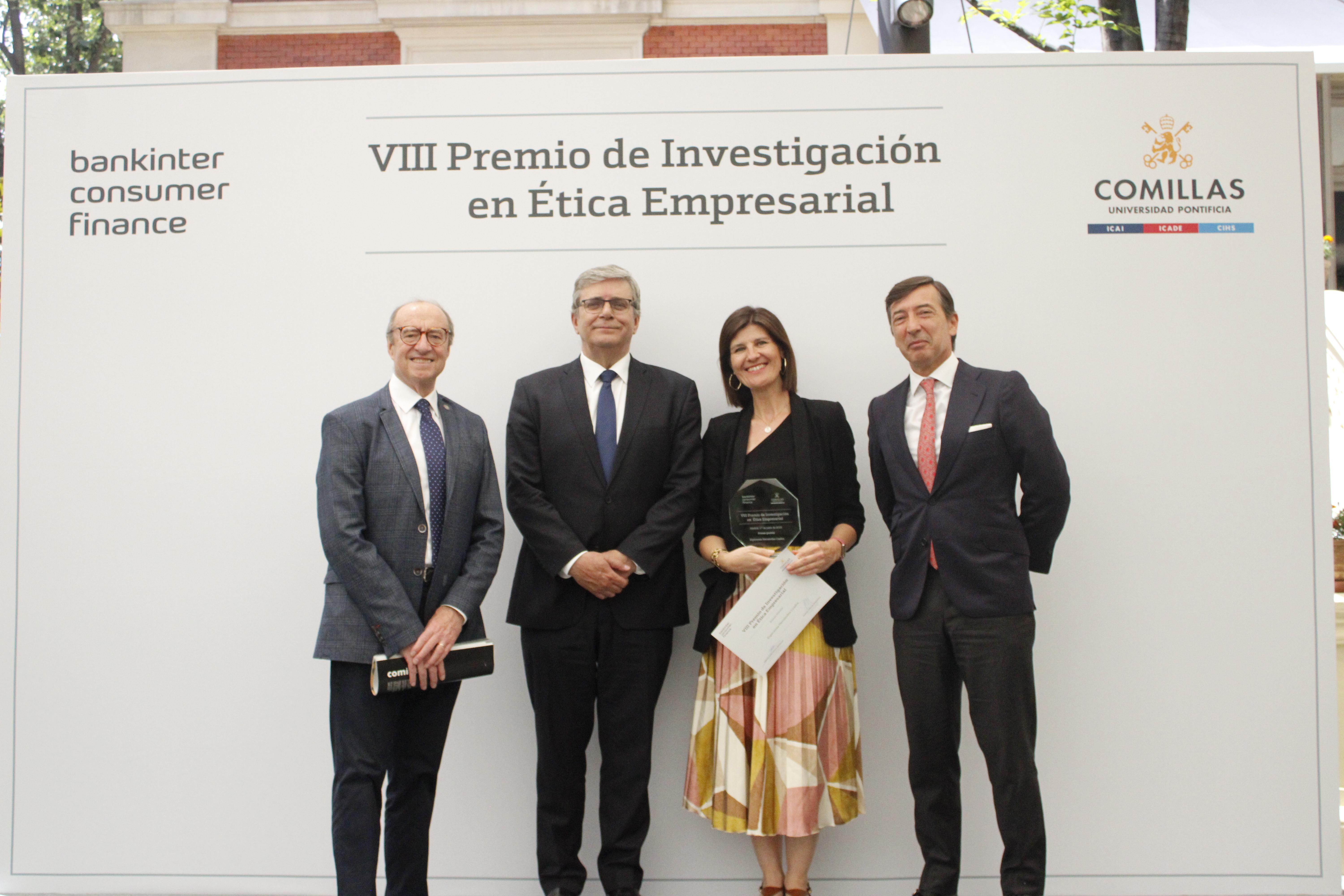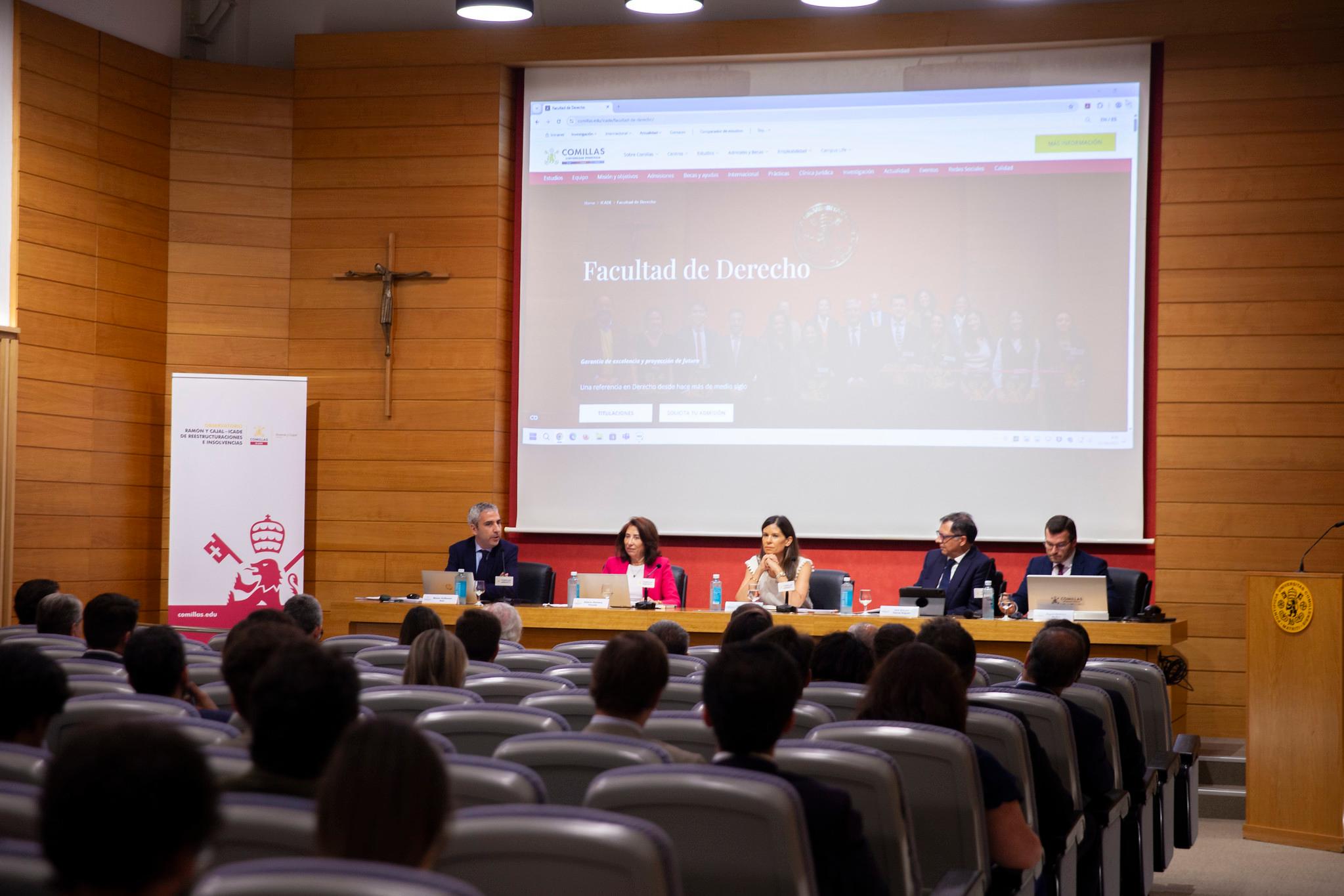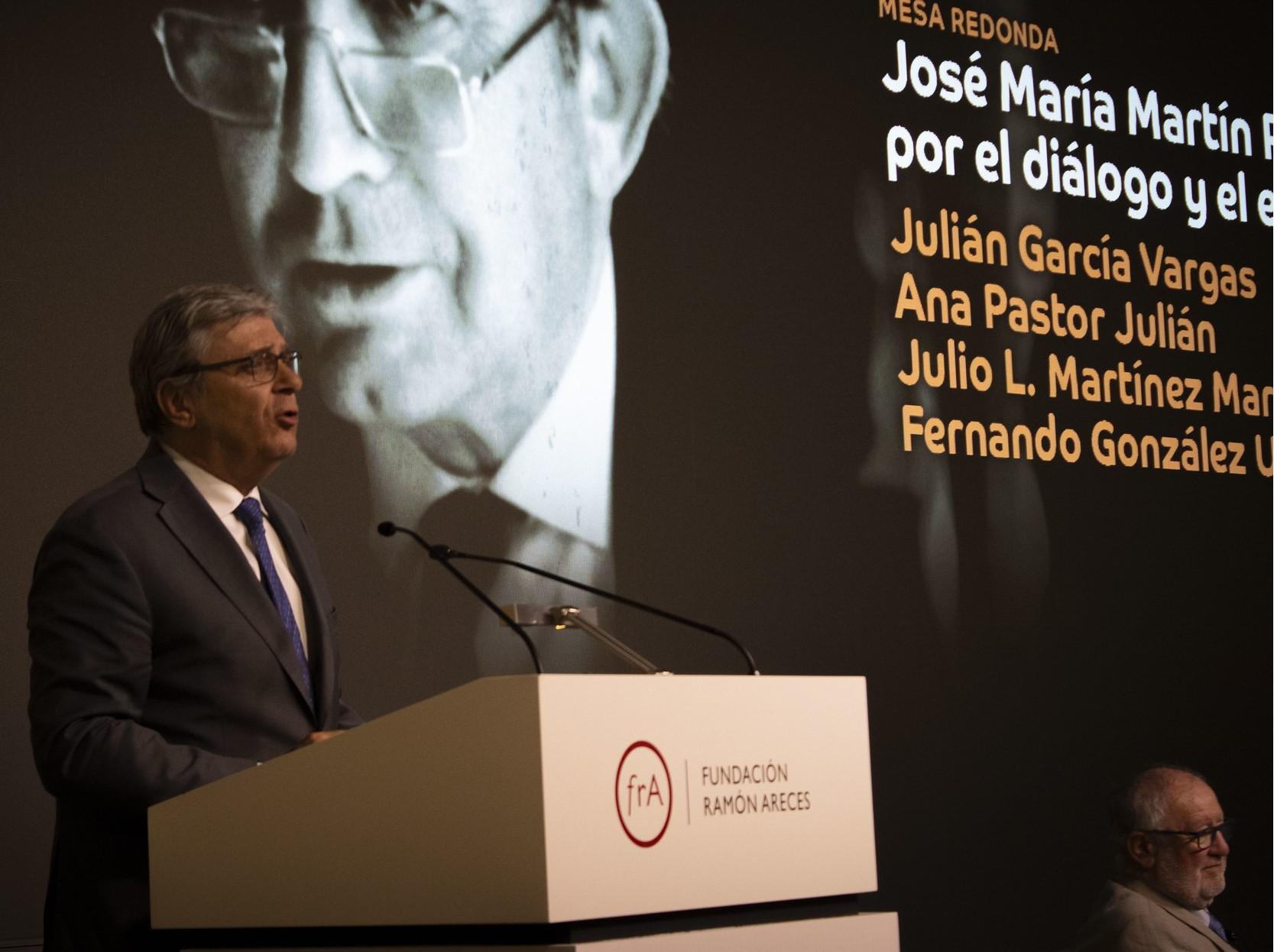Comillas signs the Rome Call for IA Ethics
The goal is to promote an ethical approach to artificial intelligence

From left to right, Mons. Renzo Pegoraro, chancellor of the Pontifical Academy for Life; Federico de Montalvo, Vice-Rector of International Relations and General Secretary at Comillas, and Rafael Amo, director of the Chair in Bioethics
17 March 2023
On 16 March, during the XXXVI Interdisciplinary Seminar on Bioethics, Federico de Montalvo, Vice-Rector of International Relations and General Secretary at Comillas, signed on behalf of the university, and by delegation of the rector Enrique Sanz, the Rome Call for IA Ethics. This document was first signed on 18 February 2020, in Rome, to promote an ethical approach to artificial intelligence.
The Rome Call for IA Ethics aims to promote a sense of shared responsibility among international organisations, governments, institutions and technology companies in an effort to create a future in which digital innovation and technological progress put people at the centre.
Pointing to a new algorethics, the signatories pledged to ask for the development of an artificial intelligence that serves people and humanity as a whole; that respects human dignity, so that any individual can benefit from the progress of technology; and that does not have as its sole purpose the increased benefit or the gradual replacement of people in the workplace.
The signing took place together with Monsignor Renzo Pegoraro, chancellor of the Pontifical Academy for Life, who was at the university to participate in the Interdisciplinary Seminar on Bioethics held from 14 to 16 March, which addressed the bioethical challenges of artificial intelligence.
Related news

VIII edition of the Business Ethics Research Awards

Legal, economic and academic experts analyse the challenges and solutions in the field of corporate insolvency

Comillas Pontifical University and the Ramón Areces Foundation held a round table in tribute to José María Martín Patino, on the centenary of his birth, highlighting his role as a reference point for social and ecclesial dialogue
